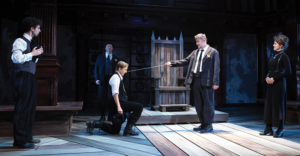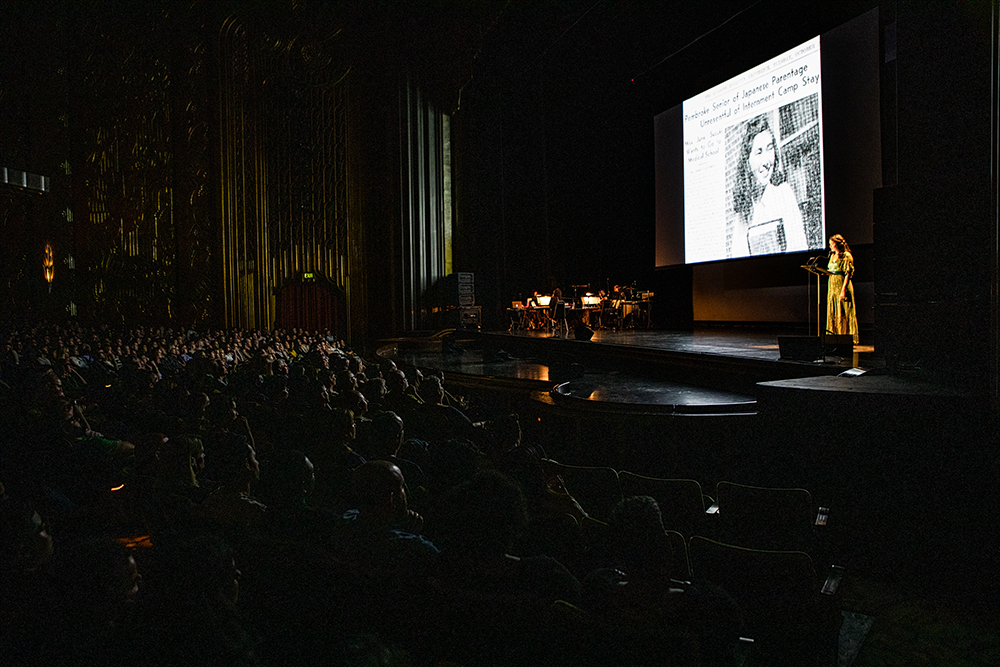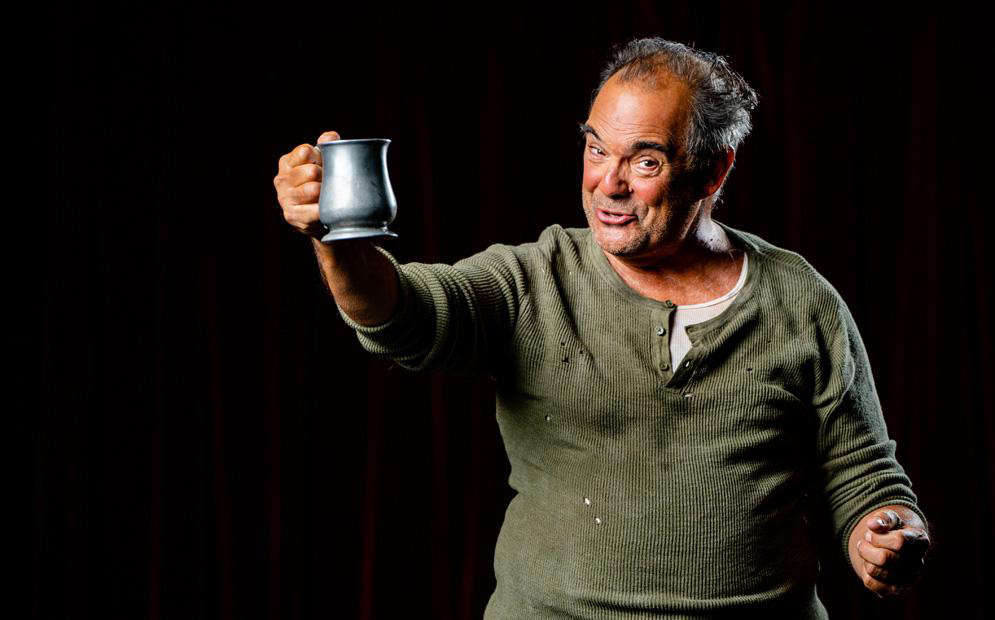
The Folger Theatre put out another stellar production with its witty rendition of “King John,” one of Shakespeare’s lesser-known histories. Director Aaron Posner delves into the nuance of power, flawed leadership and commodity through the 13th-century play, which explores the delicate and wholly complicated nature of familial life. Over the course of five acts, the English Plantagenets and the French royal family engage in petty battles over territory, heredity and religious alliance to Rome.
The crown’s fragile state and the head it rests upon create central points of tension in the play. Artistic producer Janet Alexander Griffin dramatizes the Shakespearean tragedy in a relatable and effective way while Resident Dramaturg Michele Osherow also ensures the historical accuracy of the play’s modern interpretation. Although the costumes are reminiscent of Churchill-era England, the plot follows Shakespeare’s original intention of poking fun at politics through the Plantagenet family before the death of John’s eldest brothers and his ascension to monarch.
The play opens with a prologue crafted by the actors themselves, which introduces the audience to the complicated family tree and alliances that entangle the French in the Plantagenets’ affairs. By including audience members before the layers of the plot unfold, Posner compels his audience to delve into the play’s nuances and relevance to modern times. The lighthearted beginning, in which characters snidely remark to one another about the family’s relations, introduces an element of satire into the production.
As family members weave in and out of the narrative during their fight for the throne, King John, played by Brian Dykstra, is the central figure. Dykstra aptly portrays the flawed ruler’s political blunders and intense internal conflict. King John’s decision to murder his nephew Arthur exemplifies the accuracy of Dykstra’s portrayal; the ensuing grief that Dykstra conveys reveals both John’s insecurity as a monarch and the Plantagenets’ multifaceted family dynamic.
Queen Eleanor of Aquitaine, played by Kate Goehring, is also a dynamic character. Eleanor defies the era’s norms of female passivity by exerting great authority over her son John’s rule; she serves as a powerful feminine force that exposes John’s submissiveness. Goehring amplifies Eleanor’s dominance through her own commanding presence.
The sparsity of the set design and costumes directs the focus to the characters’ shifting relationships. The set consists of only a bare throne and a suspended crown, emphasizing the pending status of the monarchy. The exposed stage also highlights the intimacy between the characters, heightening the stakes in the emotionally charged scenes.
Sporadic flashes of light, directed by Max Doolittle, are used to signify tension in the plot. Flashlights illuminate the otherwise dark stage during a battle scene and spotlights blind the audience as the plot crescendoes toward the play’s climax.
The simple costumes put together by Sarah Cubbage assume a 20th-century British style rather than a conventional 13th-century Shakespearean wardrobe. The use of boutonnieres is striking in light of the plain costumes and the colorless world of the play. The yellow flower that is the namesake of the Plantagenet family adorns the breast of the family members and their allies, while the French royal family wears blue boutonnieres. The boutonnieres serve as physical representations of altered alliances as English nobles abandon King John for the French. This costume decision emphasizes the role of commodity as the driving force for all characters: Even kings, who have infinite power, constantly seek material gain.
Though “King John” ends with tragedy for its misguided protagonist, the satirical and modernized interpretation of the play captures its playful commentary on the often-ironic nature of politics. The play’s meditations on fickle alliances and commodity’s debilitating influence on individuals remains a powerful message. The Folger Theatre’s production of “King John” sheds light on the role of humor in the context of Shakespearean tragedy. Gibes at the commodification of politics in 13th century Europe urge audience members to consider the relevance of “King John” in today’s political climate.
“King John” is running at the Folger Theatre until December 2nd. Ticket prices range from $35 to $85 and can be purchased through the Folger Theatre’s website.



















